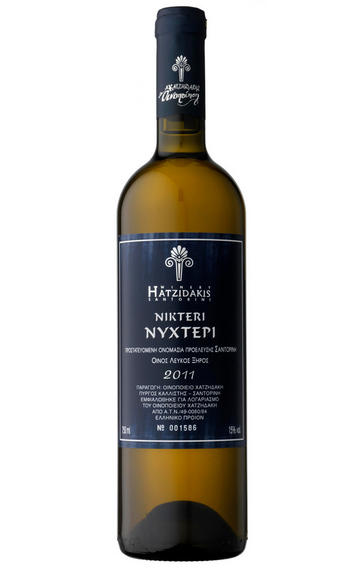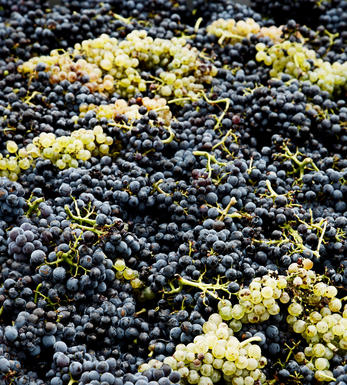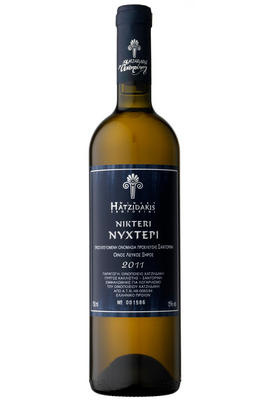
About this WINE

Assyrtiko
Assyrtiko (aka Assirtiko) [pronounce: A seer' tee ko] is one of Greece's signature white wine grape varieties, used for both dry and sweet wine. It reaches its apogee in the island of Santorini (where it was first planted – currently 70% of the island’s vineyard area). It yields a bone-dry, steely wine that has deliciously concentrated citrus aromas mixed with an earthy, mineral aftertaste evocative of the volcanic soil of Santorini.
Uniquely, the vines are cultivated in low basket shaped crowns, pinned to the ground, for protection from the often fierce winds dominating the climate in Santorini. Coming off the sea, the nocturnal fog brings much needed water to the vines during the dry, hot summer season and this, coupled with the cooling northerly winds provide the right growing conditions for the grape to thrive.
Assyrtiko is highly resistant to most grape diseases and this partly explains why it been widely re-planted throughout appellations in Greece, such as in Paros, Naxos, Crete, and in smaller quantities in Attica, Drama, Epanomi, Halkidiki and Hromitsa, Drama.
Owing to its pronounced mineral profile, Assyrtiko stands up well for blending with grapes such as Sauvignon blanc, Sémillon and the indigenous Greek white grape Malagousia.
These are wines to be enjoyed young or aged; the ideal complement to delicate dishes, fish, seafood and, surprisingly, even grilled meat dishes.
More famously, Assyrtiko is paired with the aromatic Aidani and Athiri white grapes for the production of a distinctive, naturally sweet wine called Vinsanto (derivative of the name Santorini), known since the Byzantine times.
Vinsanto can be naturally sweet or fortified and must be barrel-aged for a minimum of 2 years. The opulently sweet Vinsantos display a deep amber colour, a thrilling nose of crème brûlée’, chocolate and dried apricots and a palate of dates and dried figs.



Buying options
Add to wishlist
Description
The name of this wine derives from the word "Nikta" which in Greek means night, and traditionally this style of wine was made by picking the grapes in the cool of the evening and then continuing the vinification during the night. With the advent of refrigeration facilities, this practice has ceased, however Haridimos really wanted to make a wine that reflected Santorini's wine making history. The wine is fermented and maturated in oak barrels of different capacity and aged for at least 12 months and is bottled unfiltered.
Demetri Walters MW, Hellenic Wines Specialist
Nikteri is made from mature, late-harvest Assyrtiko grapes from prime location vineyards in Santorini. The resulting 15% alcohol and the low residual sugar level of approx. 5 grams /litre are very well balanced by the considerable intensity and an admirable amount of complexity in its flavor profile. Even if you are not an enthusiast for oaked wines, if you’re going to try an oaked Assyrtiko, this is the bottling to try first. It handles its oak brilliantly, the lush fruit and the fine acidity power to balance the oak and enliven the wine.
Eva Polaki, Greek Wine Specialist
wine at a glance
Delivery and quality guarantee